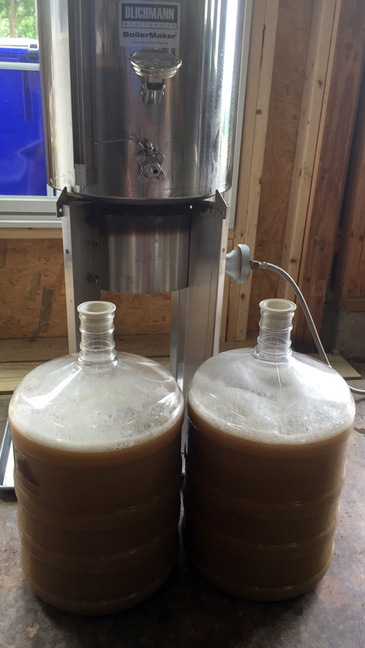

Finally, no sparge is simple – you just drain the wort into your boiler, taking care to do the usual “vourlof” step of recirculating the first few quarts of runoff. Third, since all of the water is in the mash tun already at a stable pH level due to buffering from the grains, you don’t run the risk of “oversparging” your mash and extracting excessive tannins. Second, mashing at a high water to grain ratio can result in a more complete conversion and good attenuation – which is desirable for many beer styles. First, you avoid having to separately heat sparge water up and also the need for a fly arm, since all of the water is already in the mash.

No sparge has some advantages over a traditional fly sparge. You simply mash with a lot more water, and then drain the wort out. However you entirely eliminate the need for a hot liquor tun to heat sparge water.
No sparge beersmith full#
It does require a larger mash tun (about double the size), since you need to be able to hold all of the grains, the water they absorb, plus the full volume needed for boiling. Instead the total volume of water needed for mashing and boiling is added to the mash tun at the start of the mash, and simply drained from the mash tun into your boil pot once the mash is complete. In the no sparge, we skip adding sparge water entirely. The flow of water must be managed to keep the grain bed flowing, and also the brewer must be careful not to “oversparge” by running too much water through the grain bed, which can lower the pH of the wort unacceptably and add an astringent tannin flavor to the finished beer. Simultaneously wort is drawn from the bottom of the grain bed through a screen of some kind and into the boiler. Then this sparge water is sprinkled over the grain bed in the mash tun, often by a “fly arm” which distrubutes the water evenly. A traditional fly sparge requires you to heat sparge water in a separate vessel to around 168F (75.6 C). What is No Sparge?īefore we jump into the no-sparge method, we need to briefly review fly sparging. It also has the advantage of creating a pH stable mash with no risk of oversparging the grains.

No sparge saves time by including the full boil volume in the mash and skipping the extra steps of having to heat sparge water, and sparging. Its not that we’re lazy, it is just that we want to make the most of our limited brewing time. Follow sparge brewing offers an attractive alternative for those who don’t want to deal with the hassle of fly sparging or batch sparging by using a full volume mash in an single step – just mash and drain.Īll grain beer brewers are always looking for shortcuts when brewing beer.


 0 kommentar(er)
0 kommentar(er)
